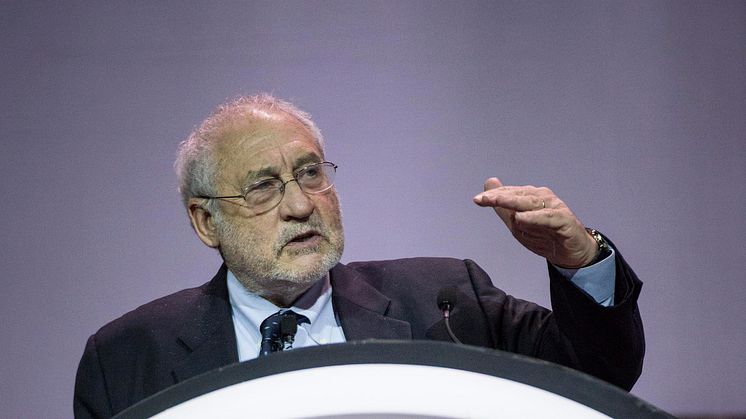
Press release -
Economist and Nobel laureate Joseph Stiglitz cites major changes in fiscal policy as the way forward
“We are half a decade on from the collapse of Lehman Brothers and there are still persistent weaknesses in the developed countries of the world. The global economy needs to recover, but I am rather pessimistic that what needs to be done, will not be done,” says Joseph Stiglitz, renowned economist and Nobel Prize laureate, speaking at the 2014 Discovery Leadership Summit in Sandton.
Stiglitz points out that the global economy is clearly not back to normal after the financial crisis. “Monetary policies being followed at present are not enough. We also need fiscal and structural policies, including essential industrial policies that promote employment and growth in targeted sectors.”
In the US, growth has increased but is still weak. It falls short of creating jobs for new entrants into the labour force, and this is reflected in weak wages. Stiglitz highlights the bleak plight of most Americans. “Median income is below 1989 levels. For the typical American, there has been two decades of stagnation. And although the IT sector is strong, it is not job-creating. And despite record-low interest rates, lending to small companies is constrained. The US is significantly below its longer-term trend.”
Moving across the Atlantic, Stiglitz showcases the even more dire circumstances of Europe. “GDP in many countries is way below 2008 levels; Spain and Greece youth unemployment is more than 50% and Germany’s average 1% per annum growth rate is hardly a success. Also, governments here have been following an inappropriate austerity path.”
Stiglitz suggests that we need structural reform of the Eurozone, not just reform of individual countries. “But Europe lacks enough critical and political consensus to do what is needed and will remain weak for years.”
Emerging markets are also getting caught up. Although 7% growth in China is impressive by historical standards, this slowdown will have a notable impact of the exports of emerging-market countries to China. One positive here is that Africa could benefit as high-wage Asia moves jobs on to our continent.
Stiglitz says it was not meant to have turned out like this. “We hoped that by throwing enough money at the problem, it would resolve itself and we could pick up where we left off. The banks are now largely recovered and recapitalized – but there is no evidence of an economic recovery.”
Stiglitz lists four key areas that require focus:
· Global imbalances need to be sorted out. Country surpluses are not being recycled and transferred, and for this to happen proper institutions are needed, for example the commendable BRICS bank;
· Structural transformation needs attention. As manufacturing becomes more productive, employment in this sector diminishes, and people who worked in these sectors come under pressure as they are not rehoused into other employment;
· Growing inequality must be tackled as the lower income earners, who make up the bulk of society’s spenders, reduce their consumption as their incomes decline;
· And finally, austerity is not the way to go.
Stiglitz concludes that the global outlook is dismal, and with good grounds, unless there are major structural changes in fiscal policy. “We know what needs to be done, but politics is getting in the way.”
Topics
Discovery information
About Discovery Limited
Discovery Limited is a South African-founded financial services organisation that operates in the healthcare, life assurance, short-term insurance, savings and investment products and wellness markets. Founded in 1992 by the current Group Chief Executive Officer Adrian Gore, Discovery was guided by a clear core purpose – to make people healthier and to enhance and protect their lives. Underpinning this core purpose is the belief that through innovation Discovery can be a powerful market disruptor.
The company, with headquarters in Johannesburg, South Africa, has expanded its operations globally and currently serves over 6 million clients across South Africa, the United Kingdom, the United States, China and Singapore. Vitality, Discovery’s wellness programme, is the world’s largest scientific, incentive-based wellness solution for individuals and corporates. The global Vitality membership base now exceeds five million lives.
Discovery is an authorised financial services provider. It is listed on the Johannesburg Securities Exchange and trades under the code “DSY”.







